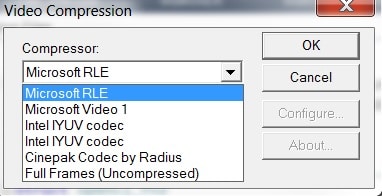Definition of CODEC in the Network Encyclopedia.
What is Codec (in computing)?
CODEC, short for compressor/decompressor, is an encoding algorithm used for recording digital audio or video. A codec compresses transmitted data at the sending end and decompresses it at the receiving end.
Microsoft NetShow uses different codecs to provide streaming multimedia information over a TCP/IP network such as the Internet.

NetShow provides a number of different codecs for different purposes. You can select a codec to give you the audio or image quality and image size that you want for your transmission.
Codec Packs
Codec packs are pieces of software that attempt to make the process easier by installing a number of different codecs at once, so you don’t have to deal with finding each one individually.
One of the most complete sets of Codecs is K-Lite. You can download it for free.
Common Codecs
Some codec examples are MP3, WMA, RealVideo, RealAudio, DivX, and XviD, but there are many other obscure codecs.
AVI, though a common file extension you see attached to lots of video files, is not in itself a codec but instead is a common “container format” that many different codecs can use.
Because hundreds of codecs are compatible with AVI content, it can get very confusing which codec(s) you will need to play your video files.
Image, video, and sound compressing history
In the mid-20th century, a codec was a device that coded analog signals into digital form using pulse-code modulation (PCM). Later, the name was also applied to software for converting between digital signal formats, including compander functions.
An audio codec converts analog audio signals into digital signals for transmission or encodes them for storage. A receiving device converts the digital signals back to analog form using an audio decoder for playback. An example of this is the codecs used in the sound cards of personal computers. A video codec accomplishes the same task for video signals.
»» You may also like this article: What is Quantum Computing?